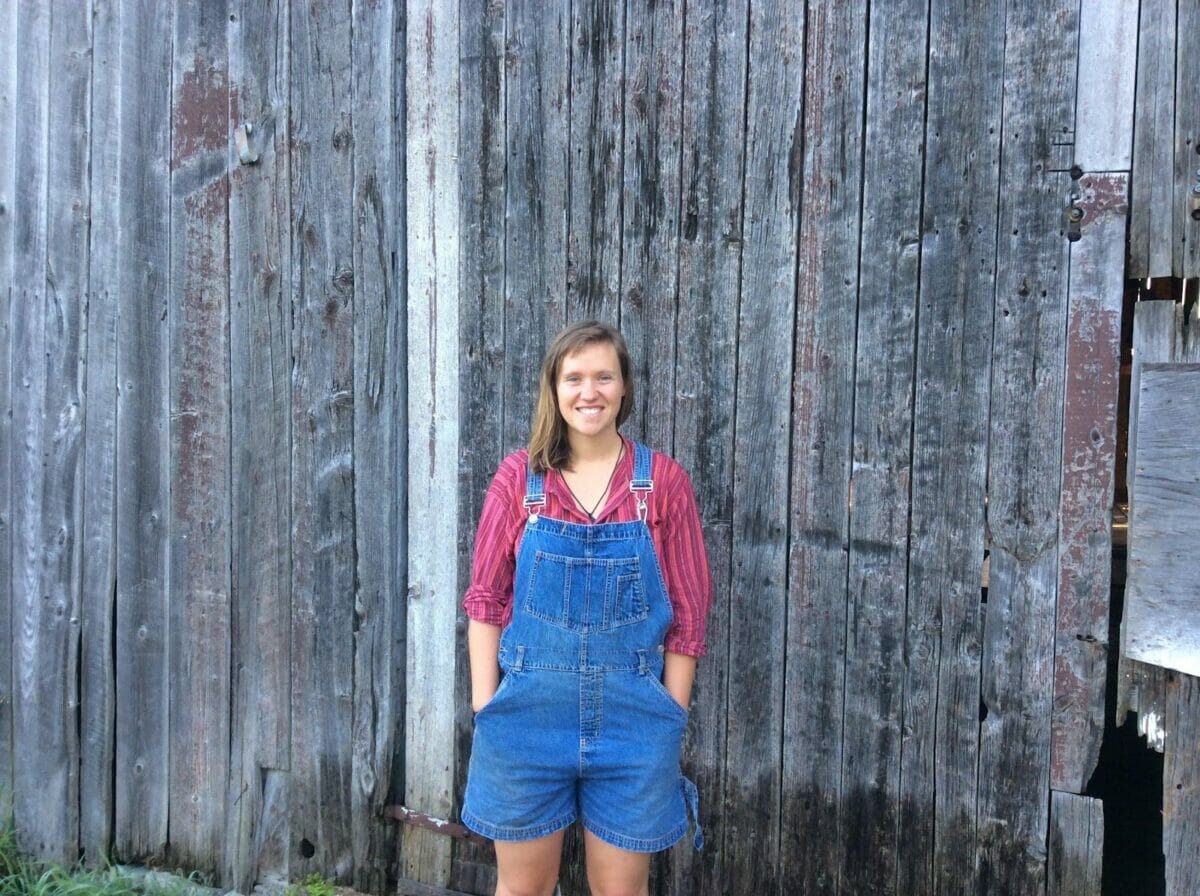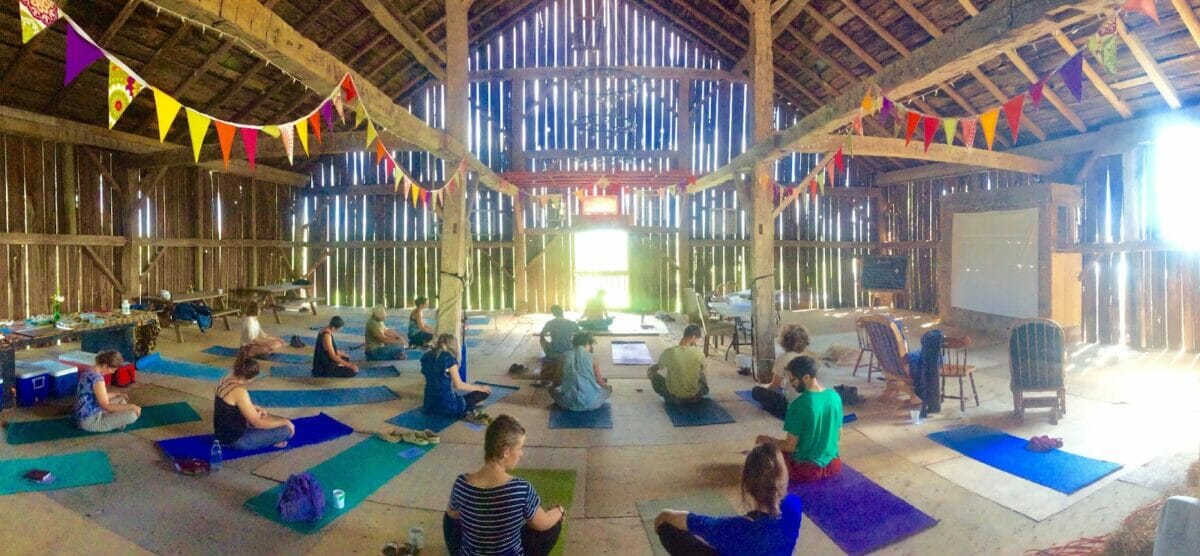Bethany Klapwyk aims to shift producers’ attitudes around their own health.

Bethany Klapwyk’s adolescent years were atypical of an average teenager. Five months after being prescribed a retinoid acne medication, she recalls falling into a traumatic spell of health challenges.
“My body didn’t feel like mine anymore and I just felt like I wanted to die,” she says. “I could not digest my food. My immune system felt like it was non-existent: I was constantly making prolonged hospital visits to deal with things like parasites and tonsillitis.”
It’s been more than a decade since those issues first arose. But Klapwyk, who began volunteering and working on a number of farms in North America several years after, says agriculture provided her with the environment she needed to start healing. Integrating wellness and methods of somatic therapy—a form of therapy that connects the body and the mind through various practices, often involving movement—have also played a role in her transformation. It explains why she has sought to use her own farm, Zocalo Community Farm, located an hour west of Toronto, as a model and resource to help fellow agrarians think about their health holistically.
“There aren’t enough support services tailored toward farmers by farmers, and it makes sense because farmers don’t have the capacity to…they’re running a farm,” she says. “I have felt called to do this work and to keep farmer wellness on the agenda. It really breaks my heart when people haven’t been exposed to the idea of taking care of their bodies and how they’ve just continued to push themselves beyond their limit.”
[RELATED: Shining a Light on Farmers’ Mental Health Challenges]
Research has pointed to the need for greater prioritization of farmer wellness. Reports of farmers experiencing climate grief have surfaced, while recent scientific studies have shown farmers exposed to extreme weather events are vulnerable to mental health impacts such as depression, anxiety and prolonged emotional distress. The ongoing COVID-19 pandemic has also contributed to the decline of farmer mental health and well-being around the world.
Armed with a number of course credentials in somatics, trauma resolution, breath work and yoga, Klapwyk offers a 10-week wellness program that explores subjects such as body awareness, manual labor, emotional wellness, sexuality, manifestation and community building within the farming world. All of her programming is informed by methods and schools of thought that Klapwyk says have transformed her own health and well-being. Ultimately, it has resulted in her being able to operate her farm more efficiently. She seeks to do the same for others in the farming community.

Farmers take part in movement practice at one of Zocalo Farm’s retreats.
For Klapwyk, her personal practice involves regularly checking in with her body and how she is feeling. This plays a factor in determining how she can tweak her day or workload to accommodate her needs. Sometimes, if she is spinning in her thoughts, she will seek out formal and informal support to talk it through. She also often integrates a type of movement such as dance or yoga into her day so negative or excess energy can leave her body. In a labor-intensive job such as farming, she believes in the power of somatic work and movement.
“This is about going beyond the nuts and bolts, the hard skills of farming,” she says. “Mental illness, trauma or stress will eventually manifest itself into physical pain. Honoring a body-mind connection is key to prevention. You cannot exclude the body from therapy or if you want to improve your life.”
Since 2016, her farm has also been a location for a number of summer and fall wellness retreats. During these events, farmers are able to connect and work with various professionals such as acupuncturists, naturopaths, massage therapists, yoga and tai chi coaches at a reduced rate. The intent of these events, Klapwyk says, is to give farmers the extra push to access some resources they might not normally have the time or money on which to spend. In her mind, farmers need a middle-man to bridge the gap, as she acknowledges a lot of wellness professionals aren’t connected to agriculture and don’t understand the farmer lifestyle and the types of stressors associated with it.
It’s something Klapwyk intends to build upon. In the future, she hopes to acquire a certification as a registered somatic therapist while exploring other courses to add to her credentials. She says she would also like to open up a space that farmers can visit beyond once a season. She envisions a location where farmers can unwind, be pampered and access any holistic health support they need. If this dream becomes a reality, Klapwyk says, she imagines it will translate into more efficient, resilient farms and, in turn, stronger food systems.
I am thrilled to see this article! I have been working in the Midwest as a farmer and massage therapist advocating in my circles for body awareness and body care for farmers my farmers. It often feels like an uphill battle, met with much resistance from the “old guard” but for farming to be sustainable we MUST consider the center of all operations – US! BRAVO to you Bethany, I would love to connect. It is so refreshing to see all that you’re doing.
Great insight and eye opening!!
Full bs